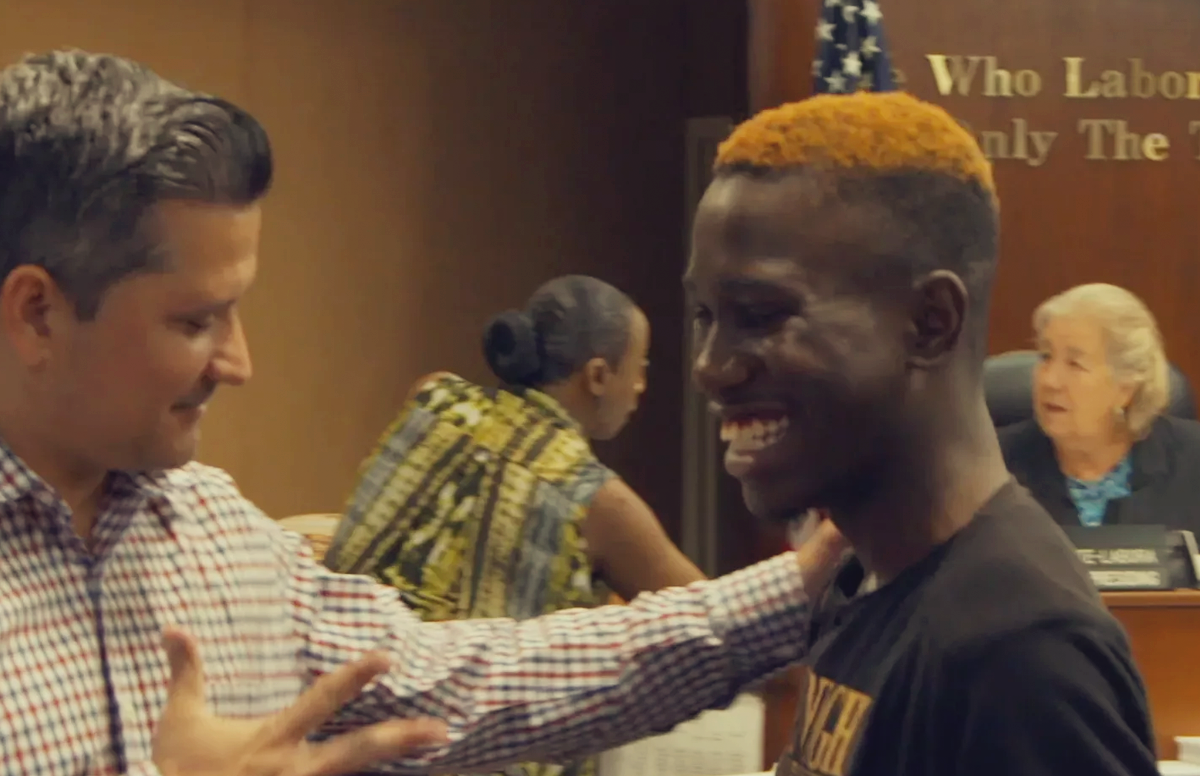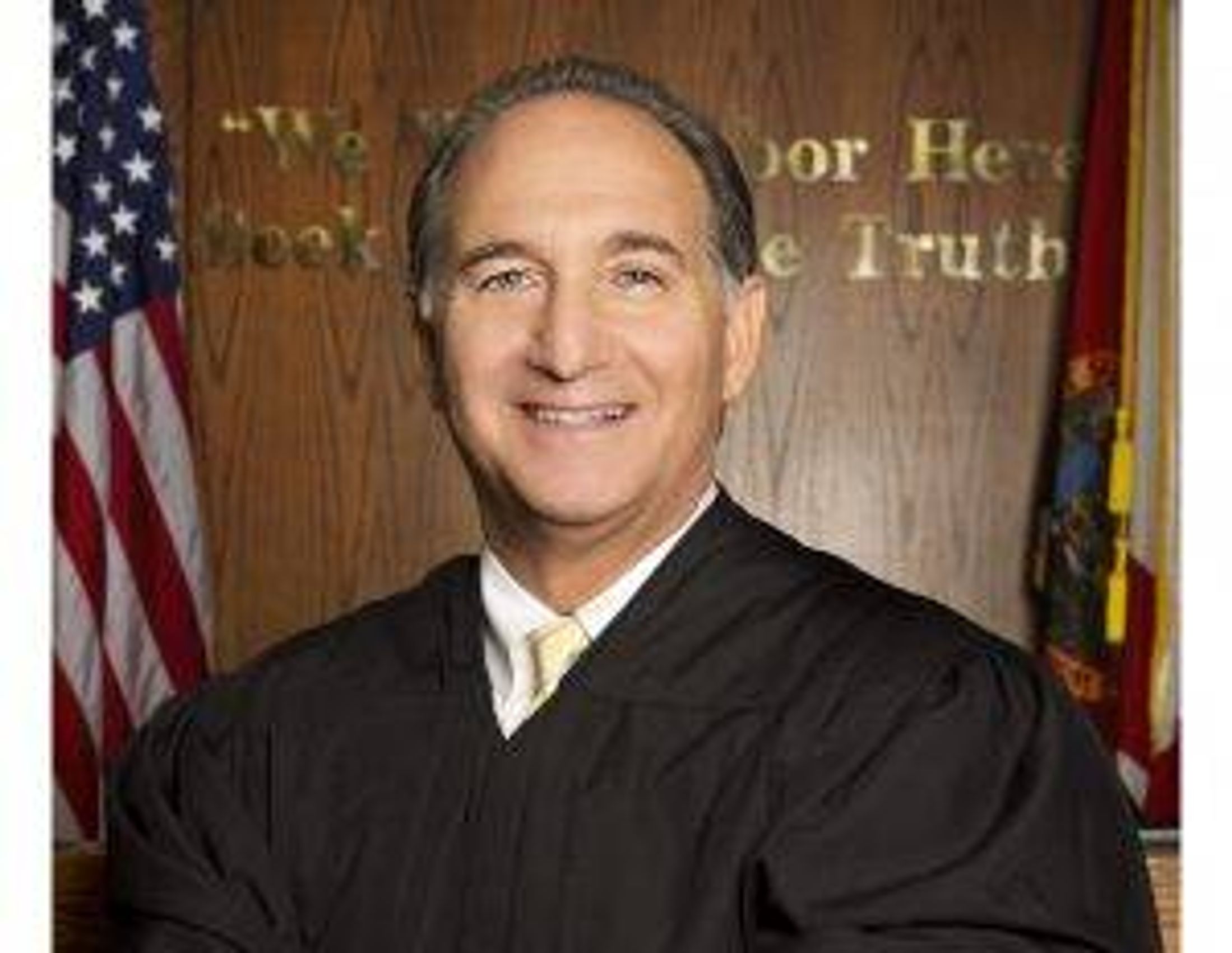When Homelessness, Mental Illness and COVID-19 Collide
A new PBS documentary on a Florida judge's vital project
Eight years ago, long before there was a hint of the coming pandemic, Miami-Dade County Associate Administrative Judge Steven Leifman delivered a lecture about the intersection of criminal justice and mental health at the Mayo Clinic in Jacksonville, Fla.

Afterward, he was taken into an office in one of the largest psychiatric treatment facilities in the country. There, he stared at a world pandemic chart showing that after every major pandemic, including the 1918 influenza, there had been a spike in schizophrenia. Since the explosion of COVID-19 cases and deaths in this country, Leifman can’t get that chart out of his mind.

He’s convinced that when the pandemic begins to dissipate, “we’re not only going to see an increase in PTSD (post-traumatic stress disorder), we’ll likely see a major increase in schizophrenia. The viruses can be a trigger for people with a predisposition,” he says. The current mental health system is inadequate to handle this, he says, and things will be that much worse if mental health illnesses spike following the coronavirus pandemic.
Leifman has special reason to worry. Twenty years ago, he created the Criminal Mental Health Project (CMHP) in Miami-Dade County, focused on diverting non-violent offenders with serious mental illnesses (such as schizophrenia, bipolar disorder and major depression) from the criminal justice system and into treatment programs.
Documentary Focuses on Mental Illness and Homelessness
That initiative is the focus of a new documentary streaming on PBS.org called The Definition of Insanity. The program follows Leifman and his CMHP team as they steer people with mental illness from the courtroom to community integration.
“When I became a judge,” Leifman says at the beginning of the documentary, “I had no idea I was becoming the gatekeeper to the largest psychiatric facility in the state of Florida: the Miami-Dade County jail. We were spending eighty million dollars a year to warehouse people in conditions that you wouldn’t let your dog stay at.”
“When I became a judge, I had no idea I was becoming the gatekeeper to the largest psychiatric facility in the state of Florida: the Miami-Dade County jail."
The CMHP says Miami-Dade has one of the largest percentages of people with serious mental illnesses of any urban center in the United States.
Homelessness among older adults and the relationship between mental illness and homelessness are also spotlighted in the documentary.
The aging homeless population in the U.S. continues to grow, something that unnerves Leifman. In a report last month, the Corporation for Supportive Housing nonprofit (Leifman's on the board) said nearly half of all single individuals experiencing homelessness in America are over 50. By 2050, the senior homeless population is expected to double; and approximately, one-third of people experiencing homelessness today were born during the second half of the “baby boom,” according to the report.
“For someone who’s been homeless for longer periods of time and has had an untreated psychosis, there’s more likelihood of permanent brain damage,” Leifman says. “We find it more difficult to treat people who are older than fifty and have experienced mental illness for a longer period of time. The brain is almost on fire when it’s in psychosis, and the longer we allow it to burn without treating it, the more damage there appears to be.”
For too long, Leifman says, the U.S. has allowed people with serious mental illnesses to be processed in criminal cases instead of moving them into treatment. “When you end up spending your entire adult life recycling through this criminal justice system, I tell people it’s the definition of insanity, where you keep doing the same thing again and again, expecting a different outcome,” he says.
Understanding the Problem
It was January 2000 when Leifman first began to understand the horrors of a system that didn’t provide sufficient support for people with mental illness and realized that the law needed to be changed.
He promised the parents of a man experiencing homelessness that he would get him help. The problem was the man -- who had been a practicing Harvard-educated psychiatrist — had severe psychosis, and was charged with a misdemeanor; under Florida law, Leifman’s only option was to release him back to the street and advise him to see a doctor.
“Not only was I unable to fulfill the promise I made to his parents, but I put him at risk, I put the community at risk and probably put my job at risk. But I followed the law,” he says.
Now, two decades later, Leifman presides over a support system of care that goes well beyond medication, including job training and housing. He hopes it can be a model for the entire state of Florida and, eventually, the rest of the country.
“If you’re homeless, if you have a substance use disorder, if you have a lot of trauma history, all the medication is going to do is reduce symptoms. It’s not going to help you thrive, survive, be hopeful and happy. We have to address all those other social issues on top of their psychiatric treatment to make this work,” he says.
Leifman knows he’s made a difference in how mental illness is perceived — from a revolving door of courtrooms and punishment to a support system that has reduced recidivism by more than 50%. Yet, he’s also a realist, conceding that mental illness remains “the stepchild of medicine.”
He acknowledges there are about 2 million arrests nationally each year of people with serious mental illnesses and, on any given day, about 400,000 of people with serious mental illnesses are in jail or prison. Another 800,000 are under correctional supervision.
But Leifman is proud of the progress the Miami-Dade program has made over 20 years. “We’ve trained about seventy-five hundred police officers on how to identify people in a mental health crisis and how to de-escalate the situation. Our arrests have gone from a hundred and eighteen thousand to fifty-three thousand,” he says.
Will the Pandemic Undo Progress?
But two decades later, will that progress be undone by an invisible virus that has upended so much of life and suddenly shifted priorities?
“That is what’s keeping me up at night,” Leifman says, adding that Miami-Dade County allocated $42 million to build the first-of-its-kind mental health diversion facility. And this year, the Florida Legislature appropriated $4 million to operate the facility.
“So, I worry that the virus could prompt [Florida Republican] Governor (Ron) DeSantis to veto it. Ironically, the last thing we should be doing is cutting back,” he says.

